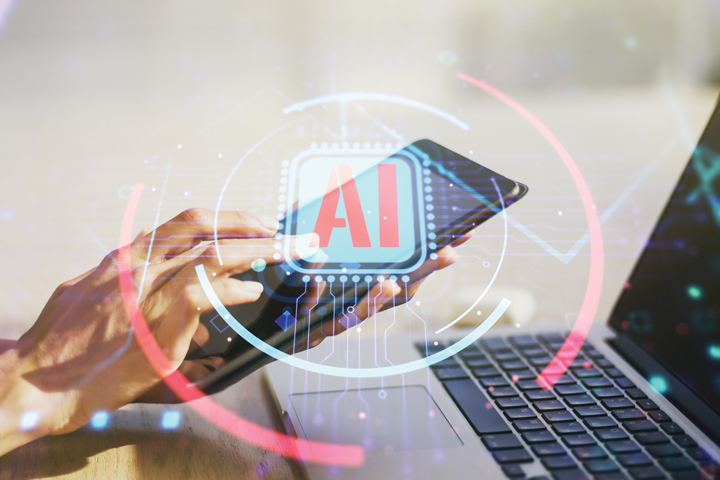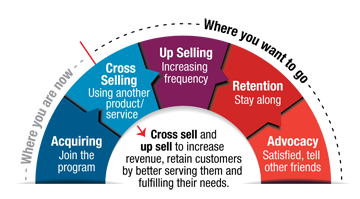Why distributors need to deploy AI now

by Nelson Valderrama
There’s often a misconception that Artificial Intelligence (AI) is only applicable to big businesses like Amazon, Fastenal or Grainger. Most people believe that since these big distributors have more customers, they have more data to leverage which must be the only way to make AI impactful and cost effective, right? Well of course, this couldn’t be further from the truth.
While it’s certainly true that bigger data means more food for an AI to consume, the tactic of employing AI should be top of mind for all. Just as it was a crucial mistake for mid-sizes distributors to sleep on the fax machine in its infancy (only 60 percent of businesses were early- to mid-adopters) and the internet in the mid ’90s, any company that wants to thrive (or survive) in the next 20 years needs to embrace AI.
So What is AI, Really?
During the Pac-West, SFA and SEFA virtual conference in October 2020, one of the top questions in the round tables was about how distributors were using AI, which I found fascinating because it was clear that few of the people at the event were relating AI to their business at all.
So, let’s review some examples of things that we could ultimately use every day:
AI-Powered Predictions — Google Maps can analyze the speed of movement of traffic at any given time. With its acquisition of Waze in 2013, Google Maps can more easily incorporate user-reported traffic incidents like construction and accidents. Access to vast amounts of data being fed to its proprietary algorithms means Google Maps can reduce commutes by suggesting the fastest routes to and from locations.
AI means creating algorithms to classify, analyze and draw predictions from data. It also involves acting on data, learning from new data and improving over time — just like a human is a consistent development that has the capability of mass change and improvement. And like any human, AI is not perfect yet.
The difference between AI and regular programming? Regular programs define all possible scenarios and only operate within those defined scenarios. AI “trains” a program for a specific task and allows it to explore and improve on its own. A good AI “figures out” what to do when met with unfamiliar situations. Microsoft Word, for example, cannot improve on its own, but Google Maps can get better at finding the best route to your work the longer you use it.
AI-Powered Recommendations — Netflix invests heavily in machine learning to continually improve their member experience and optimize the Netflix service end-to-end. Netflix applies machine learning to your viewing history to personalize the movie and TV show recommendations you see.
Netflix also analyzes what you and people with similar preferences watched in the past, and even auto generates personalized thumbnails and artwork for movie titles, to entice you to click on a title that you’d otherwise ignore.
All to ensure that we all stay glued to the screen for as long as possible.
Powerful Examples in Distribution
1) Grainger’s AI-Powered Recommendations
In a September 2020 conference call with investors, Grainger’s CEO discussed how the company had recently launched a visual search feature designed with machine-learning technology that improves search results the more customers use it. Machine learning is a form of AI that uses data on how software is used — such as during site search queries — to constantly improve results.
 |
 |
Grainger’s goal is to retain customers and increase revenue. This is a journey that starts as cross-selling, evolves to upselling, and keeps going as the graphic on the next page describes.
The hypothetical example below shows how a distributor can display to their customer what the customer is looking for (left) and how by recommending other products (right) to that same customer, they can increase the ticket (invoice) because an AI algorithm was run on the backend and discovered that the customer is likely to buy those additional products.
If the customer buys the additional products or not, the AI algorithm will learn from that, which means improving the offer, understanding better which customers to send the offer to, how often to make the offer and so on. By implementing AI, every transaction allows you to learn, to improve and to evaluate, making better experiences for your customer at each step.
2) MSC Investing in Top AI Talent
MSC Industrial Direct knows that to compete in the marketplace they need to attract new talent and just recently named Rudina Seseri to serve as a director. Seseri is the founder and managing partner of Glasswing Ventures, an early stage venture capital firm dedicated to investing in the next generation of artificial intelligence-powered technology companies.
She brings more than 17 years of investing and transactional experience to MSC’s board of directors, having invested in and helped build successful companies with innovative technologies in the fields of AI, machine learning and vertical markets including supply chain.
3) AI-Powered Predictions from Intuilize
At Intuilize,we are using AI to provide our customers with demand planning (forecasting). A correct prediction is great but being able to explain how you arrived at it is even better. It is important to create accurate forecasts, but the most accurate forecasting algorithms out there are useless if they don’t provide the rationale behind the numbers.
By using AI, even if we fail, we learn.
In the next cycle, that “miss” will be corrected. By truly embracing data science, forecasting can become the accurate measurement and lever of growth for your business that it was always meant to be.
AI is Brutally Honest — And That’s a Very Good Thing
Let’s put it this way — AI won’t hug you back. AI is without emotion and is unequivocal in its results; it tells you the cold, hard data truth. But it does need you to learn faster; it needs your guidance and input to amplify what data it has been given.
For every potential purchase order, the buyer has a hunch. It’s the hunch of how it’s going to play out, which can be spot on or very far off. The experience of the buyer is still important in forecasting, but they need to be addressed in a new way. Instead of just running on instincts, forecasting must also contain logical variables that can be replicated and explained.
By distributors using AI in their forecasting, they are reducing stock-outs which means that they will not lose business for not having stock when customers place a purchase order. But they also reduce the risk of buying too much or too soon, which will reduce the amount of working capital tied into stock.
Don’t Repeat The Fax Machine Mistake
If you are a business leader and not employing AI right now, I’m sorry to say you’re already behind the curve. For mid-sized distributors among us, you’ll soon find yourselves in the same boat as the big fish if you don’t embrace the opportunities of AI right now.
Here at Intuilize, we help distributors across the revenue spectrum take advantage of the opportunities that tech like AI offer — and the good news is, it’s far easier to get started than you think.
 Nelson Valderrama is the CEO of Intuilize, which specializes in helping mid-size distributors transform data into profits. Nelson has 22 years of experience in the industrial distribution industry helping businesses uncover hidden competitive advantages and unleash the power of data in the new digital economy. For more information contact him by email nelson@intuilize.com or visit www.intuilize.com.
Nelson Valderrama is the CEO of Intuilize, which specializes in helping mid-size distributors transform data into profits. Nelson has 22 years of experience in the industrial distribution industry helping businesses uncover hidden competitive advantages and unleash the power of data in the new digital economy. For more information contact him by email nelson@intuilize.com or visit www.intuilize.com.
This article originally appeared in the May/June 2021 issue of Industrial Supply magazine. Copyright 2021, Direct Business Media.













